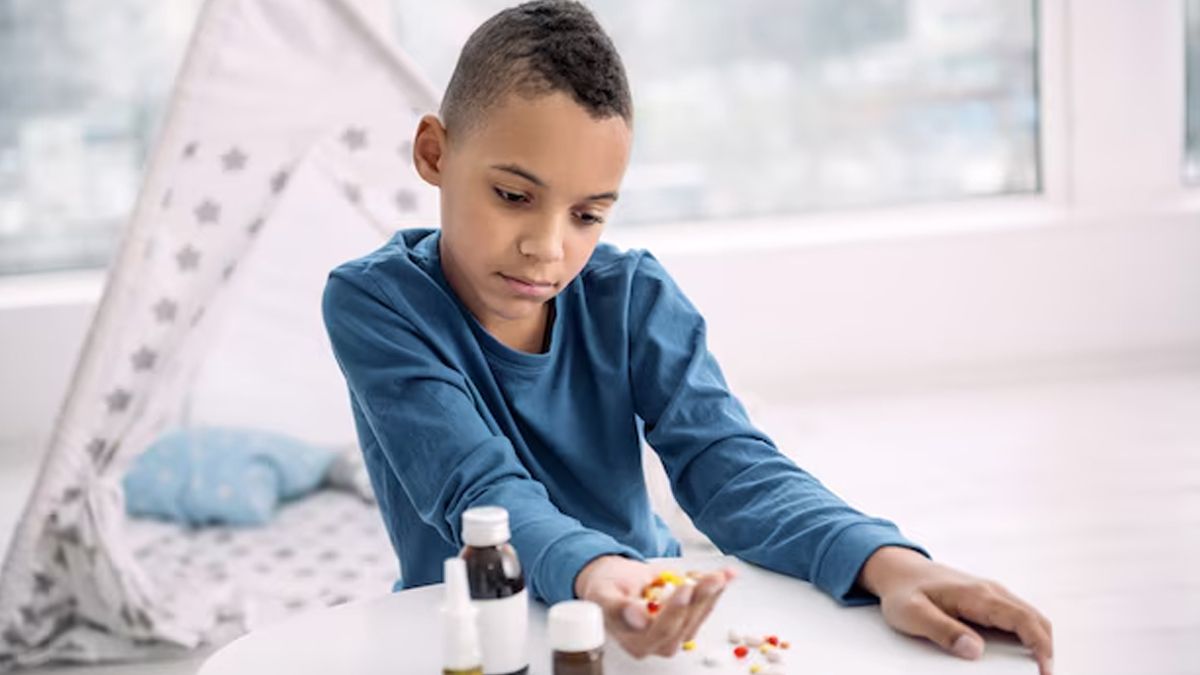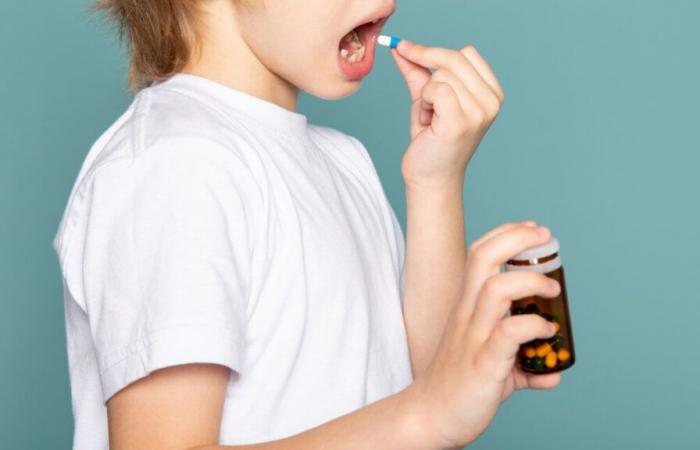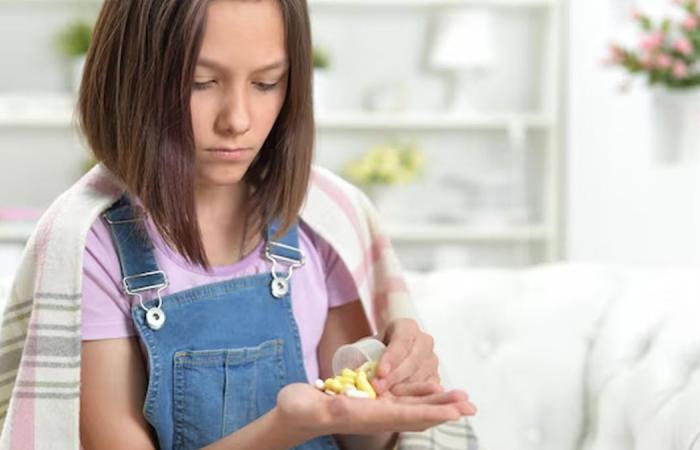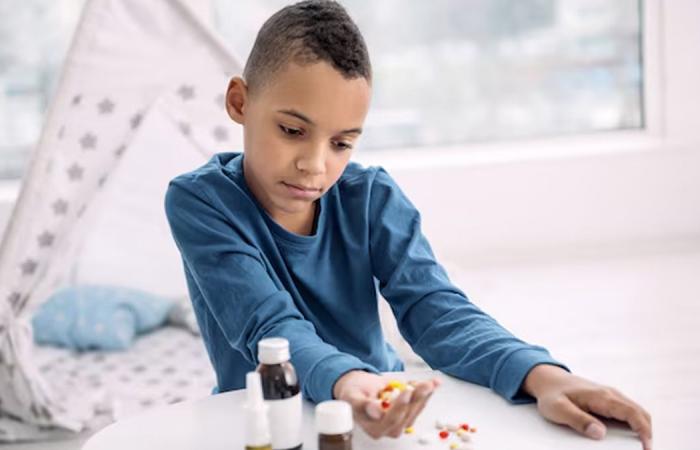It is common knowledge that older people often feel closer to their grandchildren. With the arrival of the end-of-year holidays, many parents take advantage of this period to bring their children to visit their grandparents and thus share quality moments. However, it is important to be vigilant during these meetings, especially if your child is still young and tends to put everything in his mouth.
“Granny’s Purse Syndrome” is a term that is gaining more and more attention, with pediatricians like Dr. Meghan Martin (@beachgem10) raising awareness on TikTok. She explains that young children, often left unsupervised, seek to explore their grandparents’ bags, pouches and cupboards, where they may come across unsecured medications. “Often these medications are on low shelves, in their purses, or in non-child-resistant containers,” she shared in a video. These medications range from painkillers to depression treatments, heart health and blood pressure medications, all of which are potentially dangerous and can lead to cases of poisoning if ingested by a child.
To get more information about this condition and help identify the signs and symptoms, LesNews interviewed Dr Asmita Mahajan, pediatrician and neonatologist at SL Raheja Hospital in Mahim, a Fortis associatewho also shared tips for preventing such situations.
Also read: Here are obvious signs of food poisoning in children depending on the different types of bacteria
Understanding Granny’s Purse Syndrome and Signs of Drug Poisoning in Children
Grandma’s purse syndrome occurs when children discover their grandparents’ medications left behind in their bags or cupboards, without being properly secured. One reason for this, Dr. Martin says, is that grandparents aren’t used to having children around them.
These situations can often lead to accidental or intentional consumption of medications, in some cases resulting in poisoning.
“Over-the-counter or prescribed medications are often found in the home, and if a child accidentally swallows a significant amount of an unattended medication, it can lead to poisoning,” says Dr. Mahajan.
She adds: “Children can access common medicines like cough syrups, diabetes and thyroid treatments, as well as pain medications like paracetamol and aspirin, which may be within their reach.”
A 2022 study on acute poisoning in children, published in the journal Acta Biomedicafound that 83.7% of incidents occurred at home, with mothers being the primary caretakers in 61.5% of cases. The majority of poisonings (91.8%) were due to ingestion, while inhalation and contact accounted for 4.1%. The most common toxic agents were medications (39.4%), particularly among adolescents over 12 years old (47%), followed by household products (26.6%), which were the main cause among children aged under 2 years old (29.5%) and those aged 6 to 12 years old (38%).
Depending on the doctor, drug poisoning can vary depending on the type of drug involved, and therefore the symptoms of poisoning will also be different. However, there are some common symptoms that parents should watch out for:
- Vomiting
- Diarrhea
- Abdominal pain
- Unusual sleepiness or loss of consciousness
- Breathing difficulties or apnea (stopping breathing)
If a child begins to show signs of restlessness, irritability, excessive salivation or seizures, it is best to seek medical attention without delay.
How can parents prevent drug poisoning in children?
Drug poisoning usually occurs in children who are beginning to move and walk, says Dr. Mahajan, adding that around the age of two to three, children can reach shelves and learn to open bottles or containers. , making them susceptible to ingesting medications left unattended. With that in mind, here are some steps to prevent drug poisoning in children:
- Use airtight containers to store medications so they cannot be easily opened by children. Store all medications in a locked cupboard or shelf that is inaccessible to them.
- Avoid leaving a child unattended when there are medications around the house.
- When the child is old enough to understand, explain that medications, if taken without asking adults, can be harmful.
- Parents should not administer medications to their children without consulting their pediatrician; avoid giving random dosages which could lead to poisoning.
Immediate Steps to Take in Case of Drug Poisoning

If you suspect medication poisoning in your child, follow these urgent steps:
- Remove the medicine bottle or tablets from the child’s hands.
- Remove any visible pills or medications from the child’s mouth with clean fingers and have the child rinse their mouth.
- Contact the doctor or a poison helpline to check if it is safe or necessary to induce vomiting, as this can actually be dangerous for the child; follow appropriate advice.
- If you take the child to the doctor, bring the remaining bottle of medicine with you so the doctor can check the contents and treat your child accordingly.
In addition, if you have the slightest doubt about poisoning, seek medical help immediately to quickly identify subtle signs and begin treatment without delay.
Conclusion
Granny’s Purse Syndrome is a worrying health problem that can affect any child and have serious consequences. It is essential that parents take care not to leave their child unattended at home, especially when visiting grandparents, while being attentive to immediate action to take if there are signs of drug poisoning in their family. children.
Good to know
- Educating children from an early age about the dangers of medications is an essential step.
- Medicines should always be kept in their original packaging to avoid confusion.
- Remembering to regularly check cupboards and medicine bags when children are present can prevent accidents.
This topic raises an essential question about collective responsibility around the safety of medications in homes with children. What is the place of family education and medical structures in this preventive approach? What other strategies can we consider to keep our children safe from these potential dangers?
- Source image(s) : www.onlymyhealth.com
- Source : https://www.onlymyhealth.com/grannys-purse-syndrome-signs-of-medicine-poisoning-in-children-12977821554
Our editors use AI to help them deliver fresh items from trusted sources to our users. If you find any image or content that is inappropriate, please contact us via DMCA form and we will promptly remove it. / Our editors use AI to help them offer our readers fresh articles from reliable sources. If you find an image or content inappropriate, please contact us via the DMCA form and we’ll remove it promptly.








